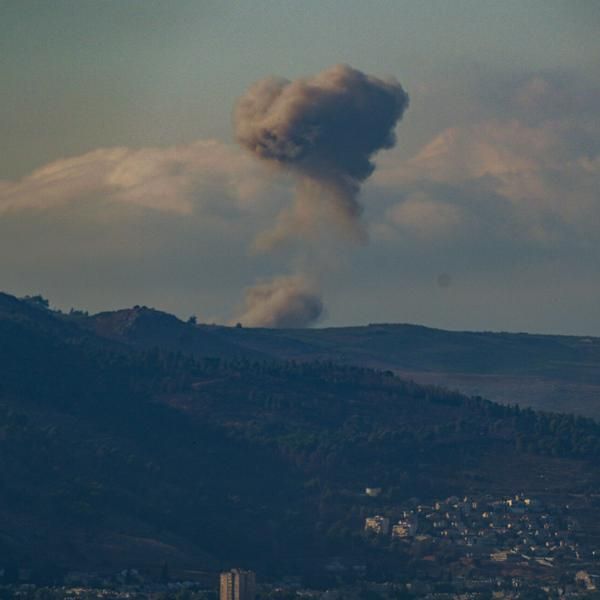Israel Strikes at Hezbollah in Southern Lebanon, Hitting City Building
In a notable escalation of tensions in the region, Israel has launched airstrikes targeting Hezbollah positions in southern Lebanon, hitting a building within an urban area. This development has raised alarms about a potential intensification of the conflict and the implications for local civilians. Observers worry that such actions could lead to further retaliation from Hezbollah and increase the risks to innocent bystanders caught in the crossfire. The international community closely monitors the situation as concerns regarding the humanitarian impact on the affected regions grow.
Background on the Conflict
The ongoing conflict between Israel and Hezbollah is rooted in decades of tension characterized by military confrontations and political discord. The conflict can be traced back to [specific historical event], which set the stage for the current hostilities. Hezbollah, a militant organization based in Lebanon, has maintained a hostile stance towards Israel and has engaged in numerous skirmishes along the Israel-Lebanon border. Recently, clashes have intensified, with both parties exchanging fire, heightening fears of a broader conflict. This ongoing volatility underscores the complexity of the geopolitical landscape in the region and the difficulties in achieving a lasting resolution to the tensions.
Details of the Strike
Israeli airstrikes targeted a building suspected of housing Hezbollah militants and military assets. Initial reports indicate that the attack caused substantial damage to the structure and may have resulted in civilian casualties, though exact figures are yet to be confirmed.
Israeli officials emphasized that the airstrikes were essential for deterring Hezbollah’s persistent threats and safeguarding Israeli citizens from possible attacks. The Israeli government sees these military actions as a necessary response to the ongoing hostility from Hezbollah, aiming to maintain security along its northern borders.
In retaliation, Hezbollah condemned the strikes, promising to respond against Israeli forces. The Lebanese government also voiced its concerns, labeling the airstrikes as violations of Lebanese sovereignty and calling for international intervention to halt Israeli aggression.
This ongoing exchange of hostilities underscores the region’s rising tensions and volatile nature, with both parties bracing for additional confrontations. The Lebanese government has voiced its apprehensions regarding the airstrikes, emphasizing the necessity for regional stability and the safeguarding of civilian lives. They have called for international intervention to avert further escalation and ensure the protection of their sovereignty. The situation remains precarious, with international observers closely monitoring developments.
Impact on Civilians
The airstrikes have heightened fears among civilians living in southern Lebanon, where many are already affected by the ongoing humanitarian crisis. The United Nations has called for restraint from both parties, emphasizing the importance of protecting civilians and ensuring their safety in conflict zones.
International Responses
The international community has been closely monitoring the escalating situation between Israel and Hezbollah, with various nations urging both parties to exercise restraint. Many countries have voiced their concerns regarding the potential for an escalating conflict between Israel and Hezbollah, particularly regarding its impact on civilian populations. Diplomatic efforts are underway to reduce tensions, with calls for dialogue emphasized to avert further military actions. Various countries and international organizations are advocating for a resolution addressing the conflict’s root causes while ensuring the safety of civilians caught in the crossfire. The United States and other Western allies, who have [specific role or stance], have reiterated Israel’s right to defend itself while also emphasizing the importance of minimizing civilian casualties.
Conclusion
The recent Israeli strikes against Hezbollah in southern Lebanon mark a dangerous escalation in an already volatile situation. As tensions continue to rise, the potential for further conflict looms large, raising concerns for the safety and well-being of civilians caught in the crossfire. The situation also has potential implications for the broader Middle East region, including [specific potential implications]. The situation remains fluid, with international efforts needed to address the underlying issues and promote regional stability.

Leave a Reply